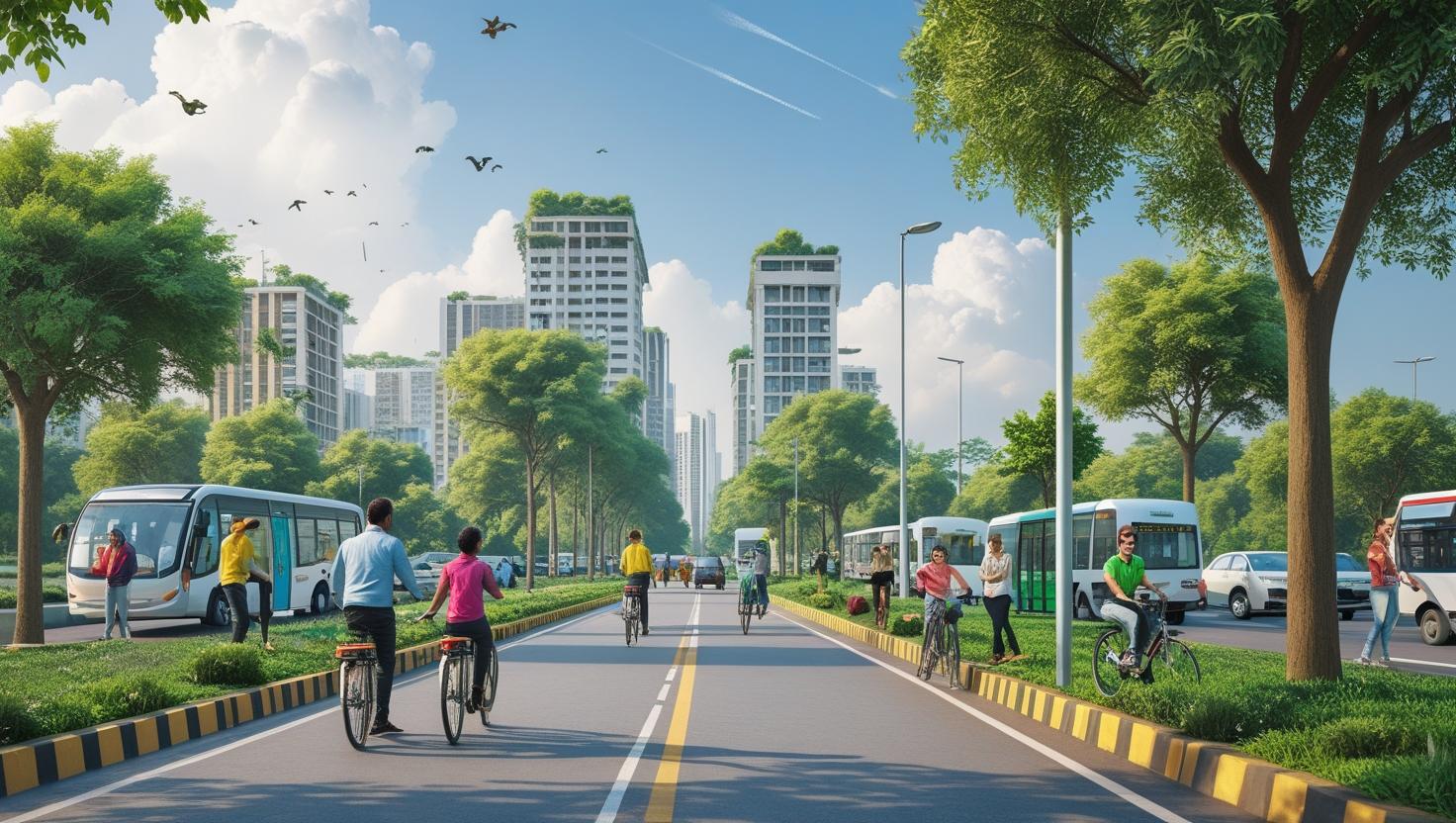Reducing Noise & Air Pollution Through Road Behavior
Introduction
Road traffic is one of the largest contributors to both noise & air pollution in urban areas. While much attention is given to vehicle technology and fuel types, driver behavior plays a surprisingly important role in shaping the environmental impact of transportation.
At Hubert Ebner India, we believe that safe, responsible, and eco-conscious road behavior can drastically reduce pollution levels while making roads safer for everyone.
The Link Between Driving Behavior and Pollution
Many drivers are unaware that the way they drive directly impacts emission levels and noise generation. Common habits such as aggressive acceleration, excessive honking, idling in traffic, or maintaining high speeds not only waste fuel but also increase the release of harmful pollutants into the air.
Air Pollution from Poor Driving Habits
- Sudden acceleration & braking → Higher fuel burn and increased CO₂, NOx, and particulate emissions.
- Excessive idling → Unnecessary fuel consumption and toxic exhaust release.
- Improper vehicle maintenance → Poor engine efficiency and increased smoke emissions.
Noise Pollution from Road Misbehavior
- Overuse of horns in traffic jams or without necessity.
- Modified exhaust systems producing loud sounds.
- High-speed driving generating excessive tire and wind noise.
Practical Road Behaviors to Reduce Pollution
1. Adopt Eco-Driving Techniques
- Maintain steady speeds instead of constant speeding and braking.
- Accelerate smoothly to reduce fuel spikes.
- Shift gears at the right RPM for optimal engine performance.
2. Minimize Idling Time
- Switch off the engine if you expect to stop for more than 30 seconds.
- Avoid keeping the AC running unnecessarily while parked.
3. Use the Horn Responsibly
- Honk only to alert others in emergencies.
- Avoid prolonged horn usage in sensitive areas like hospitals and schools.
4. Maintain Optimal Speed Limits
- Driving too fast increases fuel consumption and noise.
- Driving too slow in higher gears can strain the engine, increasing emissions.
5. Keep Your Vehicle Well-Maintained
- Regular servicing ensures proper combustion and reduces exhaust smoke.
- Keep tires inflated to reduce road noise and improve mileage.
6. Choose the Right Routes
- Avoid congested roads to minimize stop-and-go driving.
- Use navigation apps to plan less crowded, smoother routes.
Role of Driver Training in Pollution Reduction
At Hubert Ebner India, our Driver Behavior & Eco-Driving Programs focus on:
- Awareness building about the environmental impact of driving styles.
- Hands-on training to practice low-emission driving techniques.
- Behavioral change tools like telematics feedback and performance tracking.
We help drivers develop habits that reduce both noise & air pollution , making them more conscious road users.
Benefits of Improved Road Behavior
Environmental Benefits
- Reduction in harmful emissions like CO₂, NOx, and PM2.5.
- Lower urban noise levels, creating calmer living environments.
Economic Benefits
- Savings on fuel costs.
- Reduced wear and tear on vehicle parts, lowering maintenance costs.
Social Benefits
- Safer, more pleasant roads for pedestrians and cyclists.
- Positive impact on public health through cleaner air and quieter surroundings.
Our Commitment at Hubert Ebner India
We believe that every driver is an environmental influencer. Small, consistent changes in road behavior can lead to big reductions in both noise & air pollution. Our customized training modules help individuals, organizations, and fleet operators make sustainability part of their daily driving routine.




